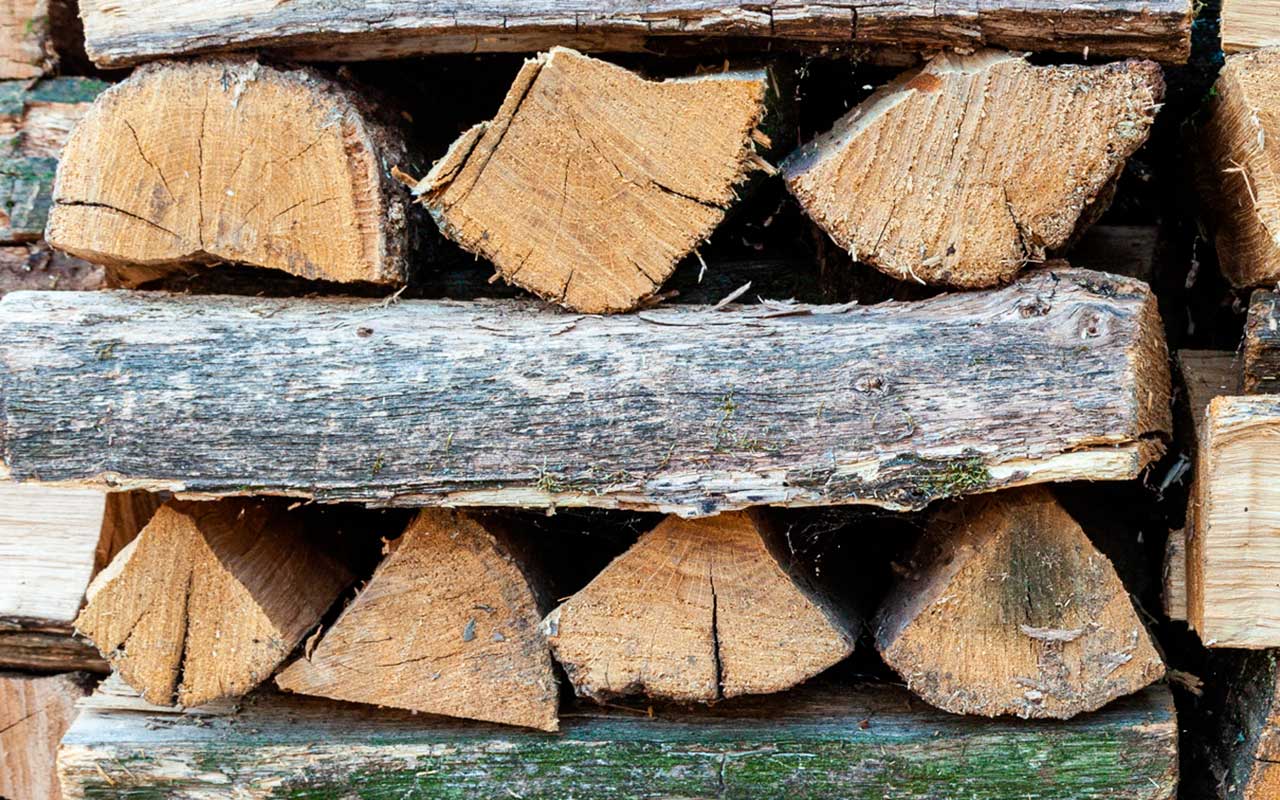Main Street News

ZEN IN THE ART OF SPLITTING WOOD
It is 5pm on a Monday, and I am trying to decide if it is too dark to split another piece of wood. I’ve been at it for half an hour, quartering log after log from the pile I amassed over the summer when I felled the first of a dozen dead ash trees in the back of my property. Clouds have hastened the onset of twilight by a crucial fifteen minutes, washing my backyard in a dark blue hue.
I settle on one last piece about ten inches in diameter and center it on the chopping block. It is small and free of knots as far as I can tell. I rest the edge of the blade on top of the log and cradle the hilt in my left hand.
Breathe.
The day has been long, and my heart is pounding with a bit more insistence than it was on the weekend.
A car passes. I listen to it fade into the distance, leaving me with the sound of the stream that runs along the side of the property. Another maple leaf crackles audibly onto the pile nearby. Now it is silent. I feel my pulse settle in line with my breathing, like an Olympic duathlete shifting from cross country skiing to target shooting in the span of a second. I take up the ax in both hands and loft it directly overhead, pausing at the apex before thrusting it downward, aiming not for the top of the log, but through it, to the top of the chopping block. With a crack, I bisect the log, the fissured halves flying apart from one another as if liberated.
This is ash, the stuff from which baseball bats are made. There is something elemental about the sound of it splitting, something perfect and effortless in its dissection, that is as instantly recognizable as the crack of a well-struck baseball. A sharp ax will cleave a straight piece of ash like a guillotine, and in five minutes, four approximate quarters lie beside the chopping block. Four potential pieces of firewood.
I’ve done the math, and in the current market, I could charge five bucks for the fruit of my labor, easy. Sixty dollars an hour is respectable compensation, but I’m not splitting wood for a living. I’m not even splitting it for burning, not much at least.
I’m not sure why I’m splitting it.
There are physical benefits, sure. Hefting a five-pound ax overhead and thrusting it downward with sufficient force to split a log activates the upper back and shoulders and, to a surprising degree, the hips. After forty minutes, I sensed the downward thrust of them when I struck the log – the follow through that drove the ax through the log and into the chopping block. The action seemed to have benefitted from the core muscles I’d built up over a season of cycling, and as a result, a few days later, I am notably ache-free.
Schwarzenegger’s intro to fitness
All kinds of gym workouts and contraptions simulate this kind of practical exercise. My teenage introduction to fitness, Arnold Schwarzenegger’s classic, Encyclopedia of Modern Bodybuilding, catalogs every variety of motion that could be used to build muscle, and if my objective were purely physical, his book provides a much more efficient means to that end. Instead of swinging an ax, I could do lat pulldowns, triceps presses, or any of the dozens of exercises depicted in Arnold’s encyclopedia.
As karma would have it, though, Schwarzenegger published his most recent book, Be Useful: Seven Tools for Life, last month, and the unlikely Zen master’s third tool, Work Your Ass Off struck a chord. Why go to the gym when I can achieve the same results by producing something potentially useful? Instead of gazing into mirrors with narcissistic insouciance, I channel my exertions into the fine grain of an ash log, ordering the cosmos one trapezoidal piece at a time until I have a stack of accomplishment that accounts for a few afternoon’s-worth of activity.
With each split, the ash laid bare its bright core, and layer by layer, my pile grew. I became adept at selecting the right logs for splitting, those without the scars of limbs being the easiest to split, regardless of their girth. My aim improved so that I could hew the smallest piece into kindling, and my woodpile achieved a more varied, even artistic arrangement of fuel for this winter’s fires.
All of this was very satisfying, and beyond it there hinted something mystical. Using one of mankind’s oldest and least sophisticated tools, I was accessing something primitive and essential about our relationship to nature. Eugene Herrigel’s Zen in the Art of Archery recounts a similar journey in the author’s six-year tutelage with a bow and arrow, and although my own journey with a dangerous implement has only just begun, his narrative offered multiple points of comparison.
Reading Zen in the Art of Archery alongside any repetitive practice will complicate and enrich the experience, and I began to think of log splitting as an art in the spirit of archery, both of which take aim at a physical target and tantalize the practitioner with a goal that can become an ends to a means. But an early line of the book set me on a path to a more elusive experience “whose aim consists in hitting a spiritual goal, so that fundamentally the marksman aims at himself and may even succeed in hitting himself.”
Whoa.
I still don’t know exactly what that means. Which seems to be the point, really.
The goal
The goal of Zen is no goal, but self-effacement in the artistic act, such that “the technical and the artistic, the material and the spiritual, the project and the object, flow together without a break.” Today’s exertion was in a way, an artistic act, hewing nature into something unmistakably wrought by human effort.
Were I to split wood regularly – daily, perhaps – I might dissolve into a natural vignette: man chopping wood beside a stream in the fall, part of the whole, as if there has always been and always will be a man chopping wood in that scene. The pursuit of Zen requires that kind of commitment.
I’m not able to make that kind of commitment, but an hour or two a week spent ordering the universe with split logs got me closer to Zen than sitting in front of the television ever has. I have no more need to divide logs for fuel than I have to defend my home with a bow and arrow, but somehow a need abides. •


